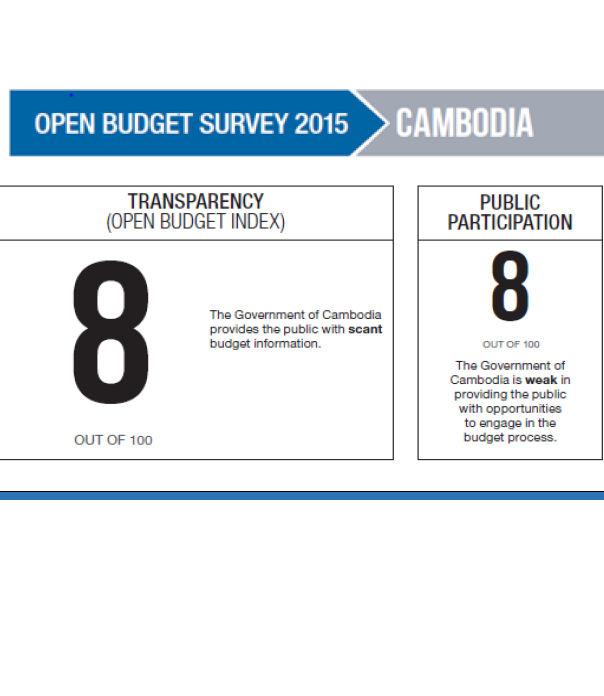
Open Budget Survey 2015: Cambodia
Publication Year: 2015 / Sources: the NGO Forum on Cambodia & International Budget Partnership (IBP)The Open Budget Survey is a unique research and analysis initiative that uses documented evidence and objective criteria to evaluate three pillars of budget transparency and accountability. Cambodia’s score of 8 on the 2015 Open Budget Index is lower than its score in 2012.
Download: English | Khmer
Analysis of Cambodia’s Preparedness for the Implementation of Sustainable Development Goals: Challenges, Opportunities and Financing
Publication Year: 2015 / Sources: Cooperation Committee for Cambodia (CCC)Precisely, the report aims to scrutinize the extent to which Cambodia is prepared to achieving SDGs based on the analysis of the existing development mechanisms/frameworks and policies Cambodia has developed. Within that overarching objective, it aims to, first of all, reveal any tensions or contradictions between the international version of SDGs and core Cambodian development plans such the National Strategic Development Plan. Second, it provides analyses of the challenges and opportunities for Cambodia and, if required, propose a macro picture of what Cambodian version of SDGs should transpire. Third, it will unravel the likely sources of funding for SDGs.
Download: English | Khmer
Program Based Budget Reform and Community Participation in Primary Education in Cambodia
Publication Year: 2015 / Sources: Save The ChildrenGiven its importance to Cambodia’s future development, the Government has committed increasing budget to the sector. According to Budget Law for 2015, the sector will receive $391 million, representing $61 million up from 2014. This is equivalent to 17.07% of the overall recurrent budget, compared to 15.5% in 2013 and 16.2% in 2014.
Download: English | Khmer
Open Budget Survey 2015
Publication Year: 2015 / Sources: International Budget Partnership (IBP)The Open Budget Survey is the world’s only independent comparable measure of budget transparency, participation, and oversight. Other public finance assessments mostly rely on government self-reporting, but the Open Budget Survey is implemented by independent researchers based in each of the countries surveyed who conduct analysis to determine the answers to 140 factual questions, and the results are reviewed by an anonymous expert.Governments in all survey countries are also invited to review and comment on the results, and many do so.
Download: English | Khmer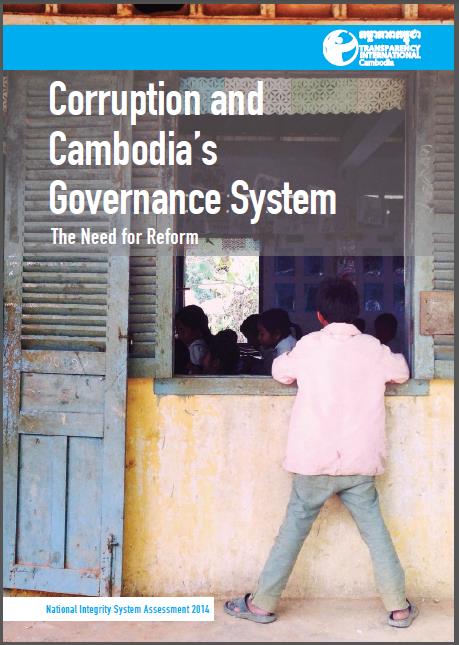
Corruption and Cambodia’s Governance System: The Need for Reform
Publication Year: 2014 / Sources: Transparency International CambodiaThe Cambodia National Integrity System Assessment provides an evaluation of the state of the country’s governance system. It assesses 13 institutions from the Judiciary to the Anti-Corruption Unit to civil society. A well-functioning National Integrity System safeguards against corruption and contributes to the larger struggle against abuse of power. Corruption undermines good governance, the rule of law, and fundamental human rights. It leads to misuse of resources, cheats citizens, harms the private sector, and distorts financial markets.Yet when governance institutions are characterised by appropriate regulations and accountable behaviour, corruption is less likely to thrive. Transparency International Cambodia has developed key policy recommendations based on the findings of this report. The recommendations, contained within, seek to engage government, donors and civil society to push forward crucial reforms to improve the integrity system. Strengthening the National Integrity System promotes better governance across all aspects of society, and, ultimately, contributes to a more just society overall.
Download: English | Khmer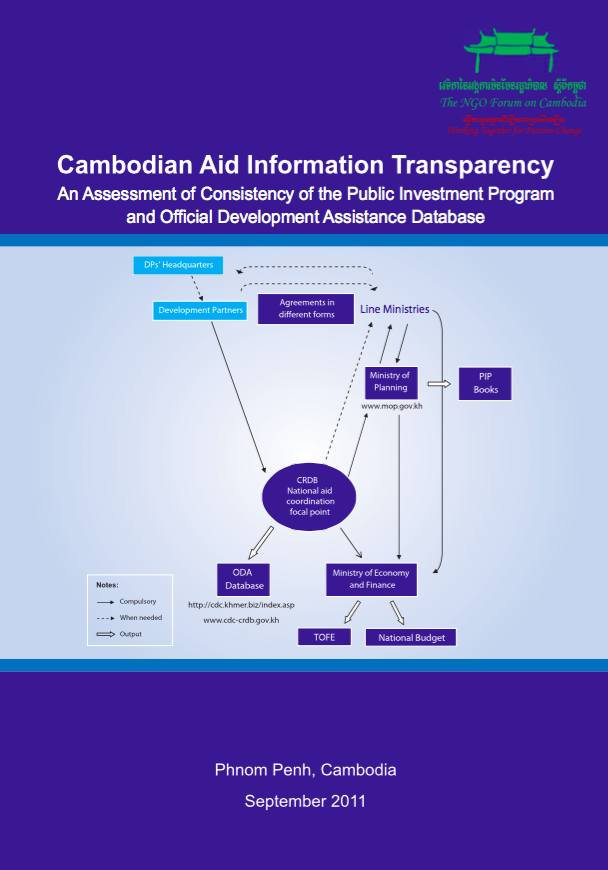
Cambodian Aid Information Transparency
Publication Year: 2011 / Sources: The NGO Forum on CambodiaThis report has been commissioned by the NGO Forum on Cambodia and conducted by the Economic Institute of Cambodia. The study aims to explore the availability of information on aid –recorded within the ODA database of the CDC and the PIP in the Ministry of Planning, which are both accessible to the public.
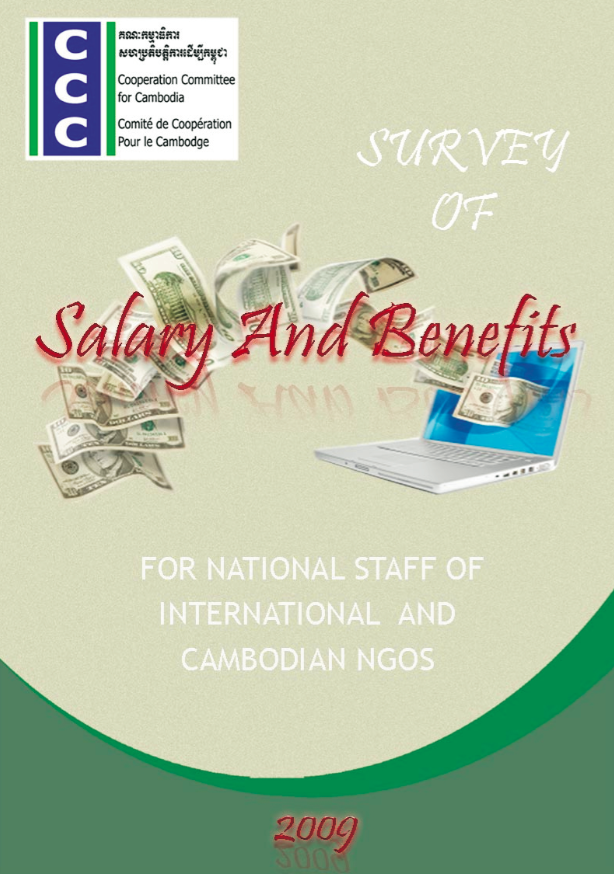
Survey of Salary and Benefits
Publication Year: 2009 / Sources: Cooperation Committee for Cambodia (CCC)CCC has been producing a bi-annual salary survey since 1993. The objective of the salary survey is to provide an overview of salaries and benefits for NGOs in Cambodia as well as, where possible, presenting some information on organizational practices and policies.
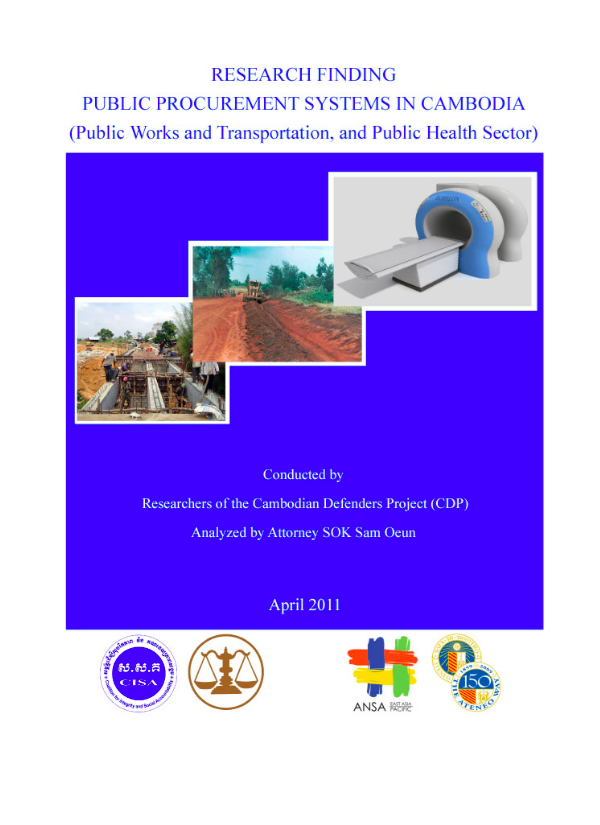
Research Finding Public Procurement Systems in Cambodia
Publication Year: 2011 / Sources: Cambodian Defenders Project (CDP)This research has not purpose to inspect or criticize the public procurement of the Government. It is to find out what the public procurement is and share knowledge on public procurement to its members so that they can understand it clearly and can assist this work to be more effectively and more transparency. Fortunately, during its workshop on launching this report on 27 April 2011, we know that the Government is drafting the law on Public Procurement. Therefore, this research report is also useful for the Government to review the recommendations in this report and use them to improve the draft of law on Public Procurement.
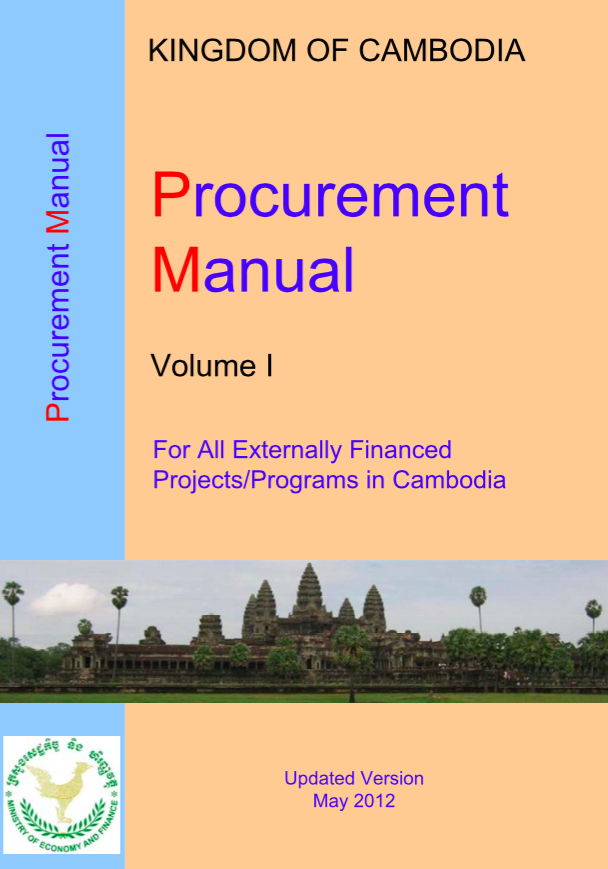
Procurement Manual (Volume 1): For All Externally Financed Projects/Programs in Cambodia
Publication Year: 2012 / Sources: Ministry of Economy and Finance, Kingdom of CambodiaThis Procurement Manual is issued both to ensure users are aware of the Government’s policies on procurement funded in whole or part by Cambodia’s Development Partners (DP) and to provide a training and reference tool for those practicing public procurement.
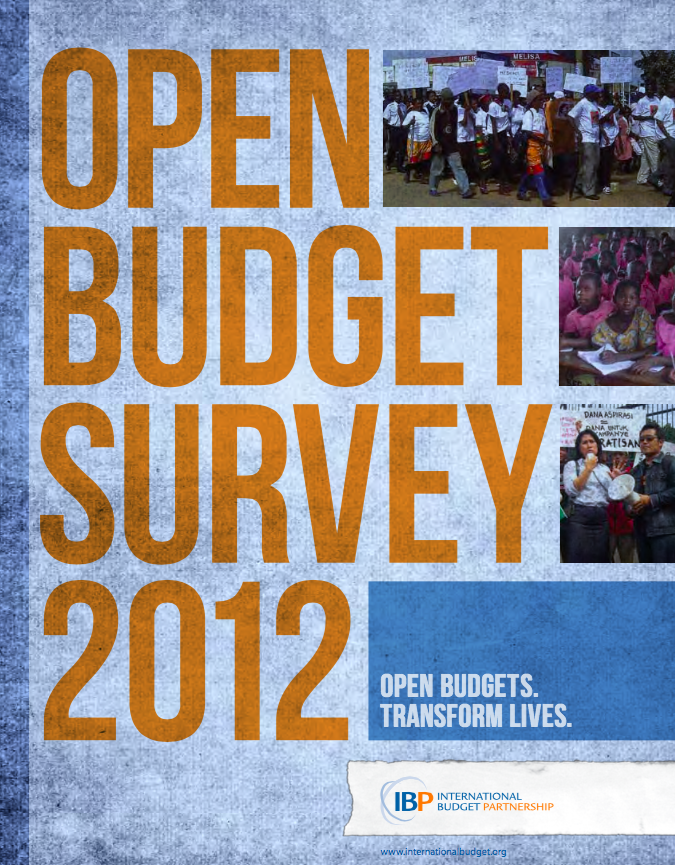
Open Budget Survey 2012
Publication Year: 2012 / Sources: International Budget Partnership (IBP)The Open Budget Survey measures the state of budget transparency, participation, and oversight in countries around the world. It consists of 125 questions and is completed by independent researchers in the countries assessed. Ninety-five of the questions deal directly with the public availability and comprehensiveness of the eight key budget documents that governments should publish at various points of the budget cycle. The remaining 30 questions relate to opportunities for public participation in the budget process, and to the roles played by legislatures and supreme audit institutions in budget formulation and oversight. It measures observable facts related to budget transparency, accountability, and participation.
